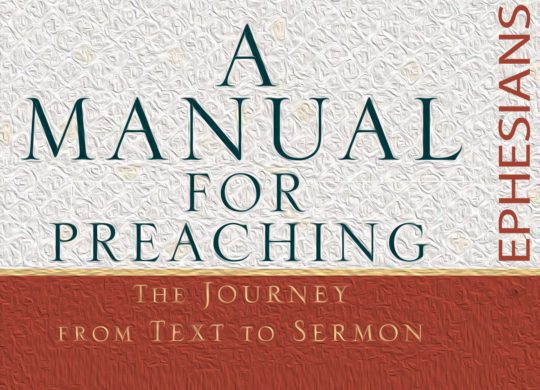Ephesians 4:1–16

In this pericope, there is an explicit exhortation to unity with a sevenfold declaration of the unifying elements of the faith, in which are present the members of the Trinity (Eph 4:1–6). These seven acclamations of the core unities of the Christian faith (4:4–6) appear to be deliberately crafted to reflect the significance of the number seven. They begin without introduction, conjunction, or governing verb in 4:4–6. Another striking element is the employment of “one” in all three genders in 4:5: “one [masculine] Lord, one [feminine] faith, one [neuter] baptism.” All this hammers home the same point, with “one,” expressed in three triads in three verses, 4:4–6.
Unity in community.
The pericope actually begins with a call to a worthy walk characterized by the graces of humility, gentleness, patience, and forbearance in love (4:1–3)—active dispositions of selflessness that result in harmonious community. Such loving and peaceful unity, fostered by selflessness (humility, gentleness, and patience), is to be a preeminent characteristic of all Christian relationships. This is a significant feature of the vast scheme of God to consummate all things in Christ, particularly in the life of the church and for the important role it plays in this grand operation. Indeed, the very existence of this unified body, the church, is a visible and tangible guarantee that cosmic unity will soon be achieved. And this sense of imminence, expectancy, and anticipation of the future ought to motivate believers’ practical walk of unity in the present, as they manifest this divine unity to all antagonistic forces.
Unity in community, fostered by selflessness.
The giving of grace by Christ is measured out sovereignly by the gift-giver himself, perfectly fitted for each person: “measured” gifts of grace (4:7), working concertedly in “measure” through each individual (4:16), leads to growth that is in “measure” with the stature of Christ (4:13). Ephesians 4:9 refers to the descent/death of Christ and his ascent/resurrection, evoking his victory over the hostile powers, his enemies (1:20–22). Here, Paul is applying to Christ the idea of the divine warrior from Psalm 68 (cited in Eph 4:8). That this theme ends with mention of Christ filling all things (4:10) also points to his cosmic victory and the ultimate divine plan of consummating all things in Christ. And from his exalted position as the divine victor, he blesses his people. Christ’s grace-gifts are those that unite the church, growing it into the stature of Christ (4:12–13), the body growing into the head (4:14–15), with every part functioning optimally and in synchrony with every other part to build the body in love (4:15, 16).
Unity in community, fostered by selflessness, manifests in the exercise of Christ’s gifts that grows the body into Christlikeness.
So the Head gives (4:11), leaders equip (4:12a), saints minister (4:12b), and thereby, the body is built (4:12c). Thus the focus of 4:10–11 is that a few individuals with particular gifts enable believers to grow into Christ (4:13) by countering all the deceits and detours of 4:14. On the other hand, each believer functions in the body of Christ in proportion to the gift given to him or her by Christ; each believer forms the “supporting connection,” all such “connections” from every believer working together causing the growth of the body (4:16): “building itself.” Strikingly, prior instances of “working” in Ephesians dealt with divine power (energeia, 1:19; 3:7); here, in 4:16, in its final employment in the letter, it deals with the “working” of individual believers, empowered by the grace-gifting of Christ through the Spirit.
Unity in community, fostered by selflessness, manifested in the exercise of Christ’s gifts, by gifted people, that grows the body into Christlikeness.
A slightly modified, but smoother, version:
Selfless and loving exercise of grace-gifts, that leads to peaceful unity, builds up the body to the mature stature of its head, Christ.












 Abe Kuruvilla is the Carl E. Bates Professor of Christian Preaching at The Southern Baptist Theological Seminary (Louisville, KY), and a dermatologist in private practice. His passion is to explore, explain, and exemplify preaching.
Abe Kuruvilla is the Carl E. Bates Professor of Christian Preaching at The Southern Baptist Theological Seminary (Louisville, KY), and a dermatologist in private practice. His passion is to explore, explain, and exemplify preaching.